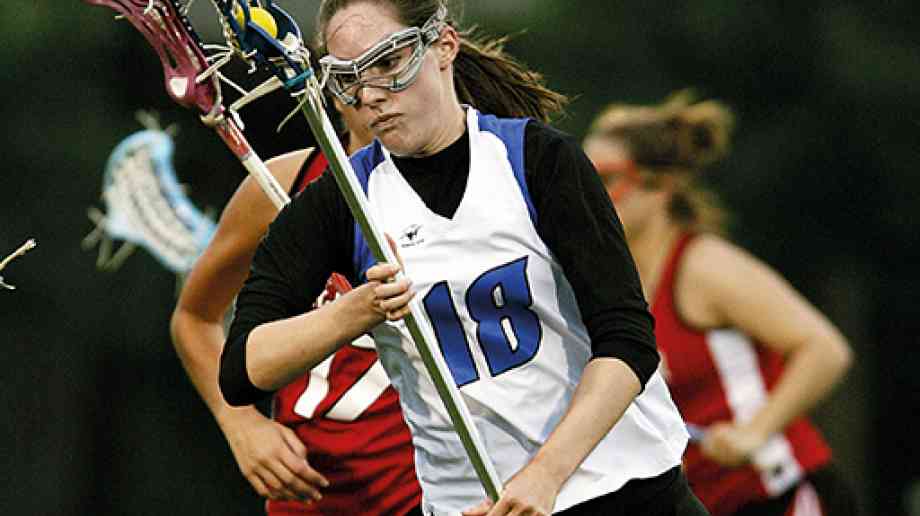
Sport and its moral dilemmas
There have been calls for a better balance between winning medals and the welfare of athletes, a message that can be communicated at school to ensure younger generations understand the importance of mental wellbeing during sport
Over the last 20 years, the top-end of British sport has undergone a dramatic transformation. Not only has the performance of Team GB rocketed from 35th place in the medal table at the 1996 Olympic Games to an astonishing 2nd place at Rio 2016, but the structures, systems and innovations have all been developed to facilitate this change.
Although some, such as team sports, may feel that they have not had opportunities to achieve such heights, the success has been almost universally heralded as an achievement for the nation to be proud of. Businesses, charities and schools have all paid attention to the success, and terms such as ‘marginal gains’ became commonplace, seeking to understand and emulate the approach and mentality required in order to make the critical performance difference.
SEEING THROUGH THE CRACKS
However, recent cracks are threatening to remove the gloss from the focused approach. Accusations of bullying, doping, racism and discrimination have emerged in a number of sports, and in spring 2017 the CEO of UK Sport, Liz Nicholl, described it as, “a wake-up call for sport”. On a wider scale, we see issues for young people in schools such as striving for body-perfection on social media, its impact on wellbeing, as well as increased use of diet supplements, based on both body image and sports performance enhancement.
The Youth Sport Trust developed and ran a bespoke and highly targeted National Talent Camp from 2007-2016, each year bringing together around 300 of the most talented young athletes, coaches and officials from a range of sports. There was a desire to bring together young people from across the field of play to explore issues which transcend all roles in sport and reveal complex moral dilemmas and ethical debates across coaches, athletes and officials. As part of the shared curriculum developed for the camp we chose to focus around 20 per cent of their time exploring their own ‘moral compass’.
This challenging section of the camp required young people to explore their views on a range of situations in competitive and performance sport, and test these with their peers. The scenarios were always real, some better known than others, and these sessions provoked demanding debate especially along the blurred line of what you would do to win, or to ensure fairness.
For example, would you ‘throw’ a match earlier in a tournament if it gave you a theoretically easier route to win a medal?
As a result of this and of the current issues within the sporting world we chose to make ‘Moral Compass’ and ‘Sporting Behaviours’ the focus of the Athlete Education Programme of the 2017 School Games National Finals at Loughborough University. By bringing this focus into the heart of a highly competitive and high profile event, the Youth Sport Trust sought to challenge sport to discuss and probe these issues when they would genuinely be put under the spotlight. Through athlete mentor workshops this education programme was integrated with the preparation, competition, debrief and recovery environment of the young athletes to create an intensive and memorable experience.
DUTY OF CARE IN SPORT
In April 2017 following the publication of the DCMS Strategy and the emergence of a number of high profile issues in sport Baroness Tanni Grey-Thompson published her comprehensive study into Duty of Care in Sport.
This report made recommendations in a number of areas including education, transition between athlete career phases, participant’s voice, equality, diversity and inclusion, safeguarding and mental health. The definitive focus of the report is a call for a better balance between winning medals and welfare of athletes.
The educational underpinning of school sport gives us the opportunity to set the tone for this more balanced proposition of sport for younger generations. The YST is asking itself, what more can we do to create school sport environments that are explicit about the importance of fun, friendship, tolerance, fair play and inclusion?
This focus on how we experience activities rather than what the activities are have also been shown to appeal most to the late-millennials in education today.
If you want to do the same for young people in your school check out the YST Talent resources and e-learning online at www.youthsporttrust.org/yst-talent
This content helps young people know their own values and make decisions in accordance with these on and off the playing field. By exploring their own values and recognising the values of others, young people are supported to develop the confidence to stay true to their values when under pressure.
Further Information:Latest News
09/01/2026 - 10:13
The measure, added to the Children’s Wellbeing and Schools Bill, delivers on the commitment made in the government’s manifesto to bring multi academy trusts into the inspection system.
08/01/2026 - 10:30
The government is launching a new app allowing students to view their GCSE results on their phones for the first time from this summer.
08/01/2026 - 09:45
Education Business LIVE has announced that Professor Samantha Twiselton OBE of Sheffield Hallam University will speak at the event in March 2026, delivering two thought-provoking sessions focused on initial teacher training and SEND provision.
07/01/2026 - 10:10
Solve for Tomorrow is a free, curriculum-linked programme which is mapped to Gatsby Benchmarks 4, 5, and 6, helping teachers embed careers education without adding to workload.
06/01/2026 - 10:24
London's universal free school meals programme has not led to improvements in pupil attainment during its first year, but has eased financial pressure and reduced stress for families.







